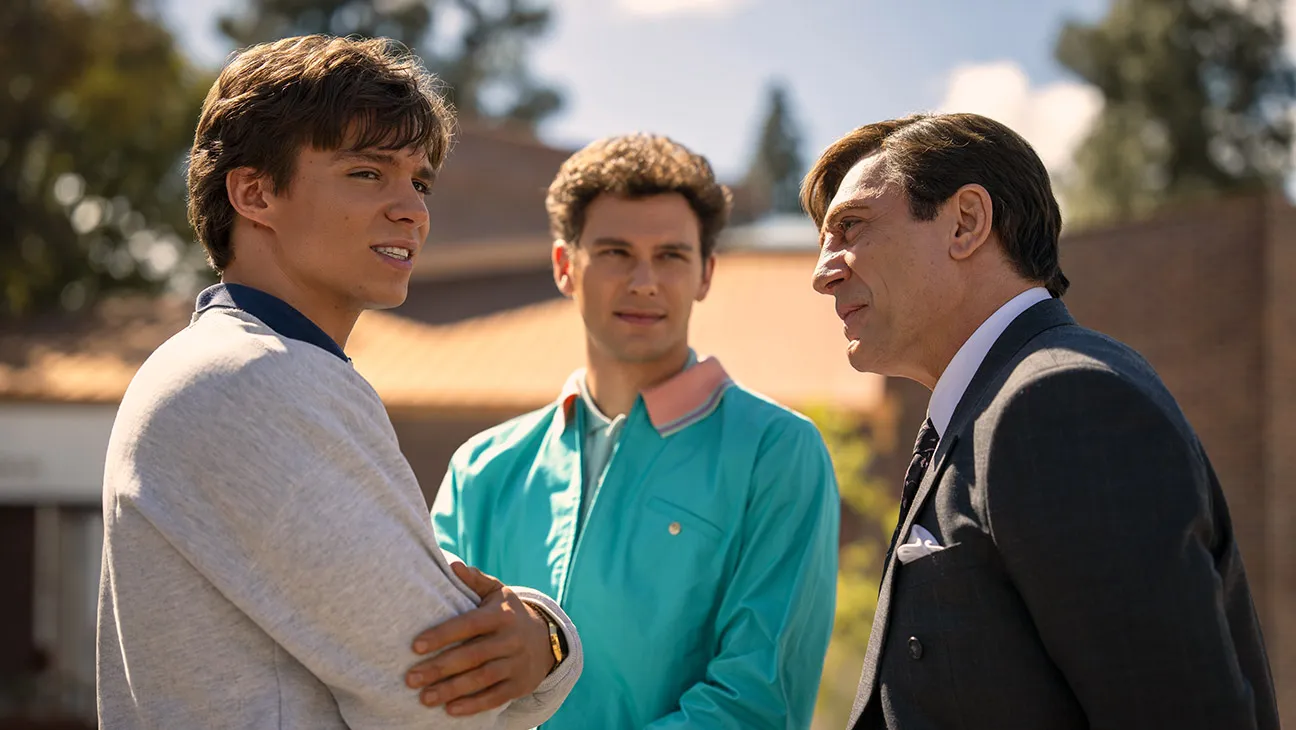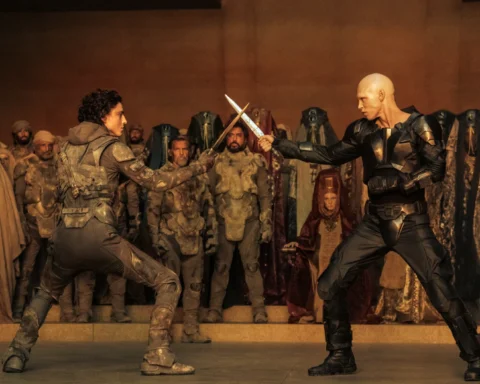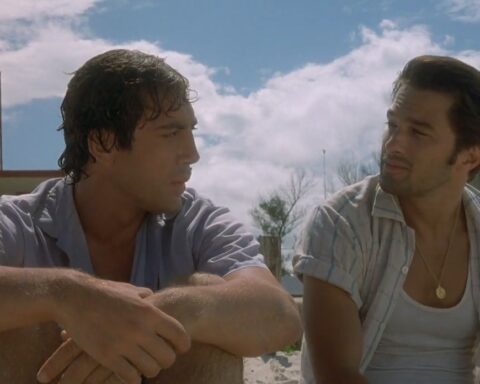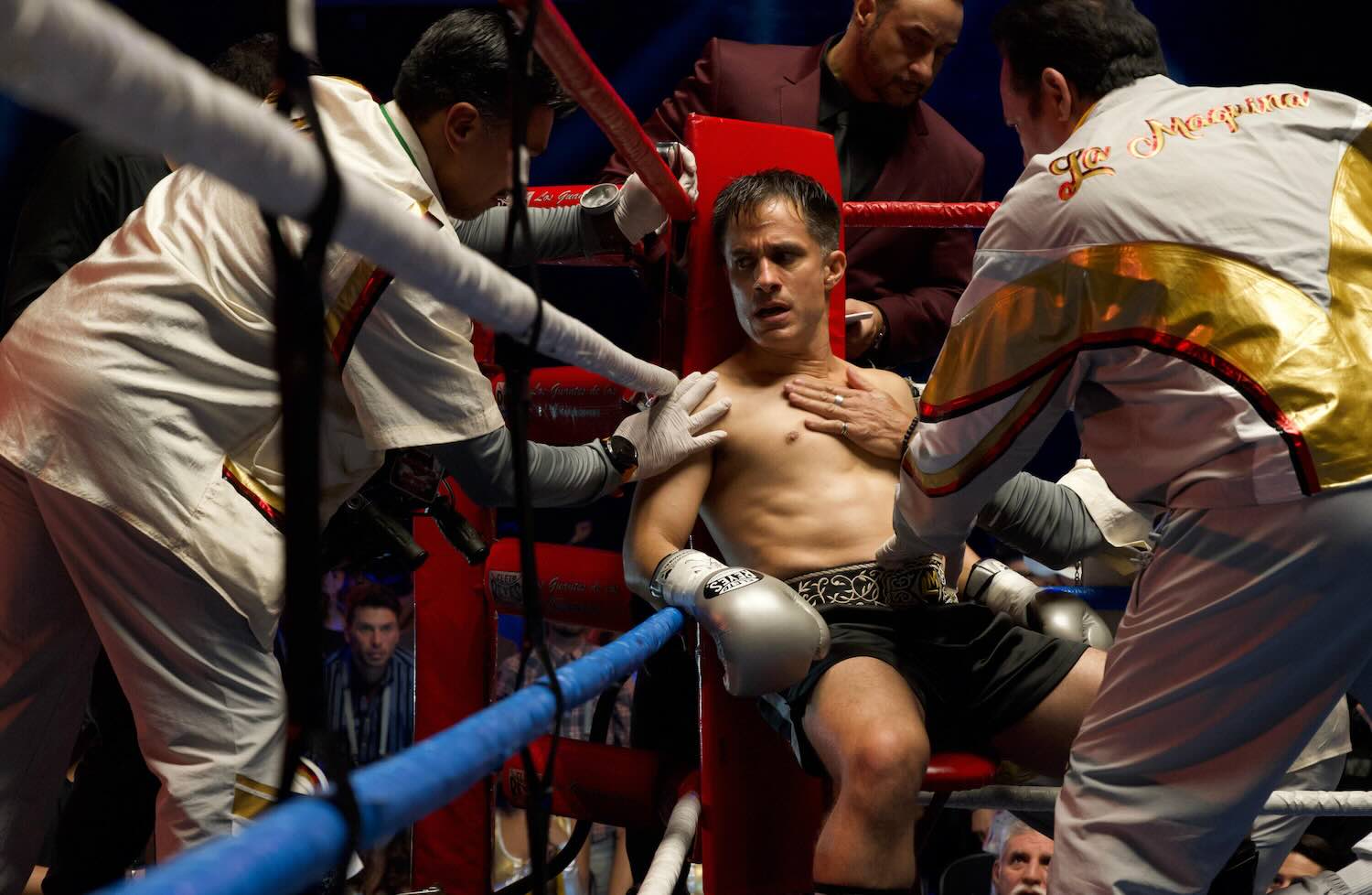Monsters: The Lyle and Erik Menendez Story, the second part of the Monster anthology by Ryan Murphy and Ian Brennan, is available to stream on Netflix. The series revolves around the double murder committed by the titular siblings in a gruesome way. In an act of brutality, they shot their parents in their home in Beverly Hills. Their fate is dictated by a first trial that ends in a mistrial, followed by a second trial three years later that ends with a conviction. The 10 episodes describe the psyche of the brothers and explore the motives behind the crime in a non-chronological manner that presents an alternative perspective emphasizing case complexity. When such a series goes into the cause of the crime, we involuntarily tend to ponder if we have to sympathize with the criminals and let go of the crimes they committed at least for a while. Here too, the makers show us reasons that turned these two young boys into ruthless killers, and at times, we even find ourselves rooting for them. But at the same time, we are reminded that however desperate the circumstances might have been, killing one’s parents is never a defensive maneuver. Balancing this unbiased perspective while translating it onto the screen is a careful task—one where the series falters.
In 1989, after murdering their parents José (Javier Bardem) and Kitty Menéndez (Chloë Sevigny), Lyle (Nicholas Alexander Chavez) and Erik (Cooper Koch) Menendez inform the police that they believe the Mafia killed their parents and that they are also being targeted. After shifting to a luxurious refuge, they quickly begin spending money recklessly, convinced they have been cut out of José’s will and will need to find it among anyone else. Feeling guilty, Erik cannot sleep without having nightmares about his dead parents. Finally, he visits their counselor, Jerome Oziel (Dallas Roberts), to confess to the crime. Jerome calls Lyle and says that he knows all about the murder. Although furious, Lyle agrees to come to the office. Scared for his life, Jerome calls his mistress, Judalon (Leslie Grossman), who was once a patient, as a witness. Later, Jerome starts tape-recording the brothers’ confessions. As Jerome and Judalon break into a fallout, she tips off the police about the recordings, and so the brothers are arrested. The Menendez family hires defense attorney Leslie Abramson (Ari Graynor) in an attempt to save Lyle and Erik from conviction. Dark secrets and manipulations are discovered throughout the trial, peeling away layers of what becomes a scandalous drama of lies, manipulation, and conspiracy theories.
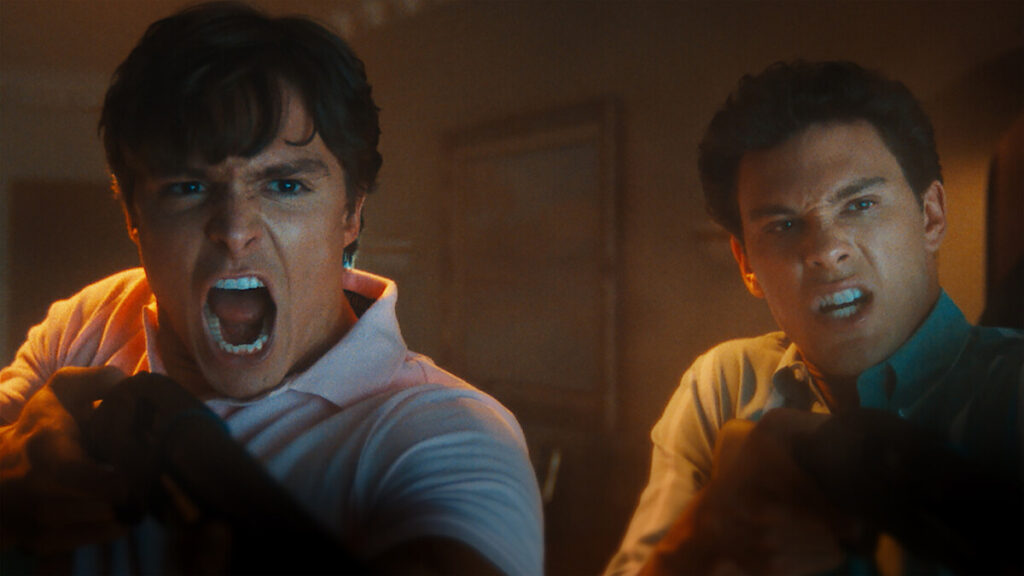
We are introduced to the lavish lifestyle within minutes of the first episode that Lyle and Erik Menendez always wanted. Buying pricey luxury items, it seems, has always been the goal in their lives, something they were deprived of when their parents were alive. They are portrayed as shrewd individuals for whom comfort without effort appears to be the purpose of their existence. Their deception of police and media after parricide depicts how evil exists in human form. But Erik takes a wrong turn by confessing about the crime to Jerome, and the castle of living happily built on dishonest ground starts crumbling. When they are arrested and the trial begins, the curtains are pulled back, revealing the Menendez brothers’ years of abuse at the hands of their domineering father, José, while their mother, Kitty, turns a blind eye to the brutality. Thus, from that moment on, the narrative shifts to one of survival, resilience, and ultimately, retaliation—a wrenching and unflinching portrayal of sexual exploitation that is both horrifying and deeply emotional. Dominick Dunne (Nathan Lane), an investigative journalist reporting high-profile murder cases, whose daughter was a victim of manslaughter, serves as the moral compass of the series. His insightful commentaries to his attentive guests provide a critical perspective on justice, grief, and morality, grounding the story in a broader social and emotional context. References to the Rodney King riots and the O.J. Simpson case are used to emphasize the reality that the perspective of citizens shifts with incidents currently unfolding in society and gaining media attention. The final sequence, where the Menendez brothers are shifted to two different prisons in a police vehicle, feels like a poetic closure to their tragic and tumultuous journey—two individuals who, despite their privileged upbringing, were shaped by circumstances and ultimately driven to commit horrific crimes.
The ten-episode format of the true-crime series, popularized by Ryan Murphy with The People v. O.J. Simpson: American Crime Story (2016), feels tiring and exhausting here. The lack of successive progression in the events acts as a major deterrent in holding our attention without dread. A promising cliffhanger at the end of each episode isn’t enough to make this an elegant series about a crime that shook the United States. In Episode 5, The Hurt Man, directed by Michael Uppendahl, Erik shares with Leslie graphic details of the sexual abuse he endured from his father since childhood. It is a somber and distressing moment, captured in one continuous take lasting around thirty minutes. This scene becomes a clever exercise in building slow, steady emotional wreckage. However, for a series where dramatic tension is typically created with multiple shots, this feels like an odd entity, and while artistic and bold, it doesn’t quite fit into the overall scheme. In the following episode, Don’t Dream It’s Over, directed by Max Winkler, we are suddenly taken back to José and Kitty’s early years—how they met in college, got married despite family objections, and how cracks began forming in their relationship over the years, turning José into a domineering figure that distanced him from his family. This again feels like a standalone, one-hour-long segment and doesn’t resonate as it should within the larger narrative.
The cinematography of the series meticulously crafts a visual aesthetic that transports us to the bygone era of the 90s, capturing the essence of the period and immersing us in its vibrant atmosphere. The editing team creates a seamless flow in each episode. However, due to the choppy and repetitive delivery of information in the story, it becomes difficult to fully invest in the lives of the Menendez brothers. The background score strikes a delicate balance of fear, apprehension, and melancholia, enriching the emotional undertones and does not fail to uplift the series.
Cooper Koch’s as Lyle Menendez captures the character’s complexity and emotional turmoil, particularly during his harrowing testimony about childhood abuse. This moment leaves the audience questioning whether Lyle is genuinely revealing a traumatic truth or manipulating the situation to sway the jury. Nicholas Alexander Chavez as Erik Menendez adds depth to his character by embodying a mix of guilt and conscience as he grapples with his role in the family tragedy. Javier Bardem’s depiction of Jose Menendez brings a gritty realism to a father who, shaped by his own harsh experiences, pushes his sons to adhere to a tough code of survival. Ari Graynor’s Leslie Abramson is a strong woman, driven by ambition and ethical ambiguity. Her decision to adopt a child adds a layer of irony to her character as she defends the Menendez brothers while confronting her failures as a mother. Nathan Lane delivers a poignant performance as a grieving father, while Chloë Sevigny’s Kitty Menendez adds a haunting quality, portraying a woman ensnared in a suffocating family dynamic.
Monsters: The Lyle and Erik Menendez Story had the potential to tell a compelling narrative about how bad parenting and family dysfunction can create harmful individuals. However, it ultimately fails to convey the message effectively and detracts us from remaining completely engrossed.
